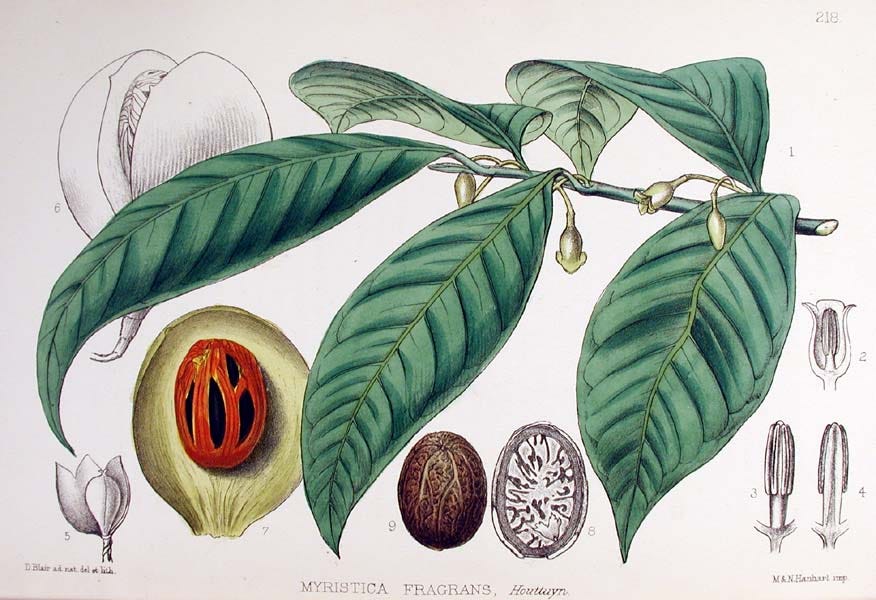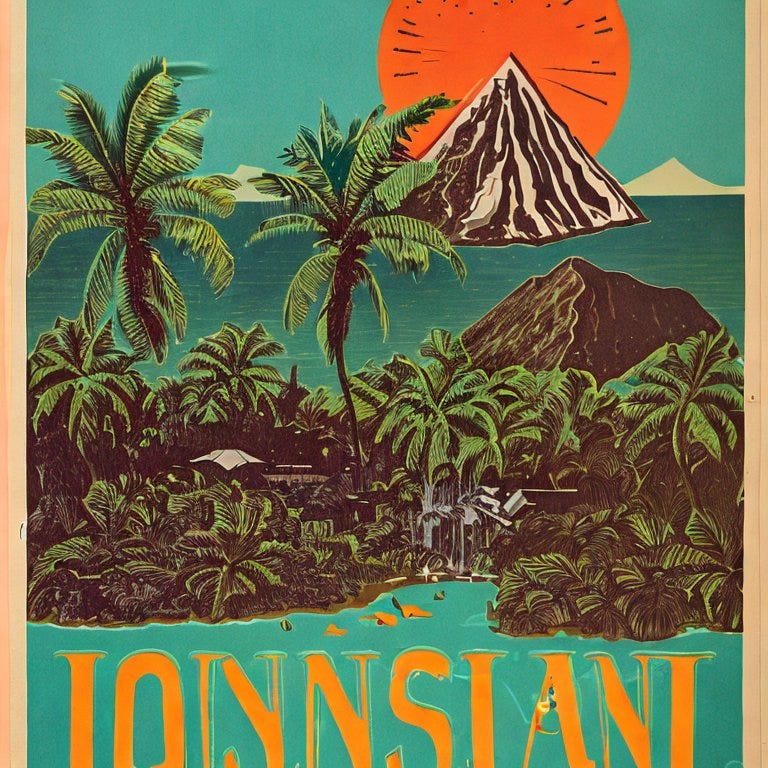🌋 The network curse: spice islands and digital renaissance
This is essay 2 of 4 essays for The Network State Creators Cohort #3
“There is no trade without war, and no war without trade”
This is a famous quote from Jan Pieterszoon Coen, the Dutch colonial administrator who played a key role in establishing Dutch hegemony in the East Indies, what is now called Indonesia. Coen meant his words seriously. He will do whatever it takes to create one of the most profitable trade networks of his time, even if it meant subjugating the lives of the indigenous population.
In my last article, I wrote about Network Trade, the direct and indirect benefits of having a network. In this article, I will explore the antithesis, the negative impact of a network. With a story from the spice islands and how to win the digital renaissance.
🌰 Banda: the spice islands
The Banda islands are a group of small islands located in the eastern part of Indonesia, closer to West Papua than to the capital Jakarta. It is strategically positioned around a large, active volcano called Gunung Api (meaning “fire mountain”). While the islands are not as well-known as Bali today, they were a major destination for European explorers during the 16th to 18th century who were searching for spices to trade for gold.
These Islands are known for their tropical climate and fertile volcanic soil, making them the birthplace of valuable spices such as nutmeg and clove. These spices were once highly prized and believed to possess magical powers, ranging from aphrodisiac to protection against the bubonic plague. At their peak, one kilogram of nutmeg was worth the price of two cows in Europe. Even before the arrival of Europeans, the local Bandanese people were trading with Arab and Chinese merchants and reaping significant profits.
However, the arrival of the Dutch in the 16th century changed these paradise islands forever. They are smart but ruthless. Ousting the local merchants out of the trade network that they have relied on for centuries. While also depopulating and enslaving the native islanders, even sending them as forced labor as far away as Sri Lanka.

Because of the high value of nutmeg, the Dutch were not the only European power trying to eat the pie for themselves. They had to fight against the Portuguese and the British to establish a total monopoly on the trade. To settle a territorial dispute, the Dutch even traded the island of Manhattan (then called New Amsterdam) to the British in exchange for a small island called Run. What seems crazy today, was a good deal back then.
The book "The Nutmeg's Curse: Parable for a Planet in Crisis" by Amitav Ghosh uses this tragic story of the Banda Islands as a reminder of how human greed has led to the exploitation of the Earth's resources for the benefit of a few, resulting in some of the worst behaviors of humankind.
“The fate of the Banda islands might be read as a template for the present”
Amitav Ghosh
🧑🏽🔬 The Digital Renaissance: challenges and opportunities for the future
This example of European exploration was made possible by advancements in shipbuilding and maritime technology. Now, with the advancements of encryption and decentralization technology, we are entering a new digital renaissance - a new age of exploration in the metaverse.
A book that is highly recommended by Balaji Srinivasa and Peter Thiel, “The Sovereign Individual: Mastering the Transition to the Information Age”, predicted how the next turning of civilization will happen. Where decentralization will give power, wealth, and knowledge back to the individual.
In the last years, we have witnessed examples of this shift, including the emergence of digital nomads who can work from anywhere and the success of crypto token owners who have gained vast wealth that previously seemed impossible.

While this development can be a great advancement for humanity, not everyone will benefit from it equally. Either due to Lack of education, resources, or complacency with the status quo. Just as peasants, serfs, and weakening religious institutions were disadvantaged in the middle ages.
Could we see a repeat of the Bandanese curse in the Web3 world? It's possible, but it doesn't have to be that way. It's an opportunity for growth and progress. We can still help those who are willing to learn and provide them with the tools to succeed or at least survive in this new decentralized world.
For example, using the “learn to earn” model. Allowing anyone to earn crypto tokens while learning and experimenting with Web3 tools. Here are some good examples to get started:
101 XYZ: a central hub for online courses that reward learners with crypto
Rabbithole: makes it easy to earn tokens by using crypto applications
Layer3: allows anyone to contribute to the Web3 economy, such as bounties from DAO (Decentralized autonomous organization)
We have survived the 20th century by shifting from pen and paper to keyboard. However, this is not enough to win in the 21st century, we need to become the Da Vinci of the digital renaissance. Til Mushoff, a fellow creator at Network State, made a helpful video on how to succeed in this era.
Conclusion
Networks have both positive and negative aspects, and those who succeed will win while others will fall behind. Digital tokens in the metaverse have become like nutmeg in colonial times, a valuable resources.
We should not repeat the same mistakes of our ancestors in the past and bring as many people as possible along with us to prosper in the new decentralizing world.

Thanks for reading this article and enjoy the weather ☀️
This is essay 2 of 4 essays for The Network State Creators Cohort 3. Check out other essays from The Network State community here.





